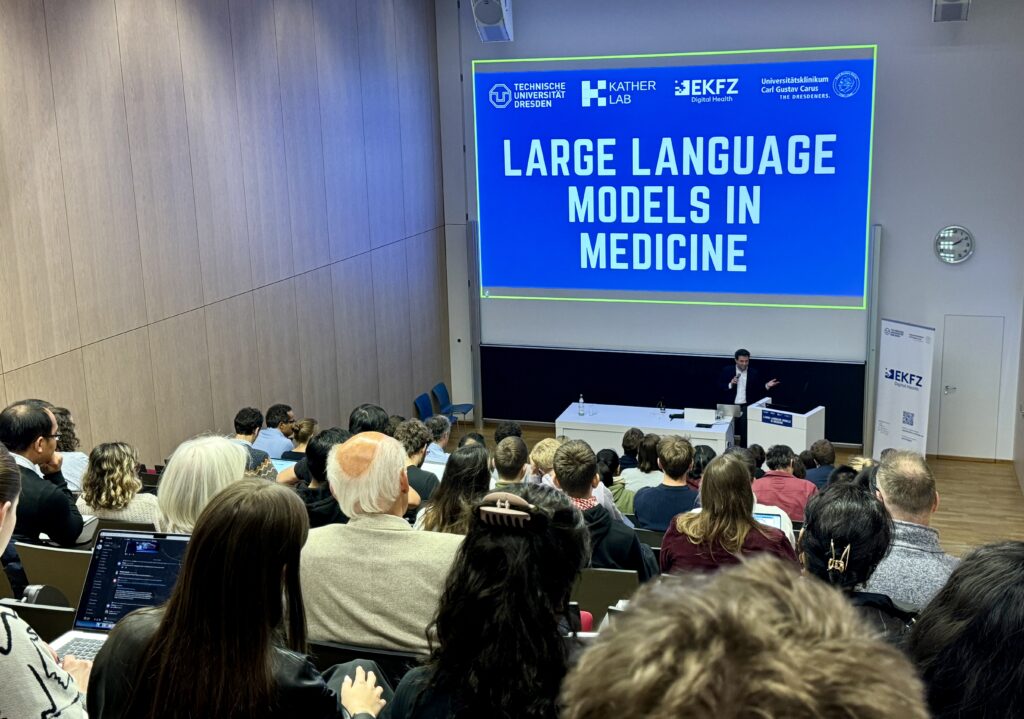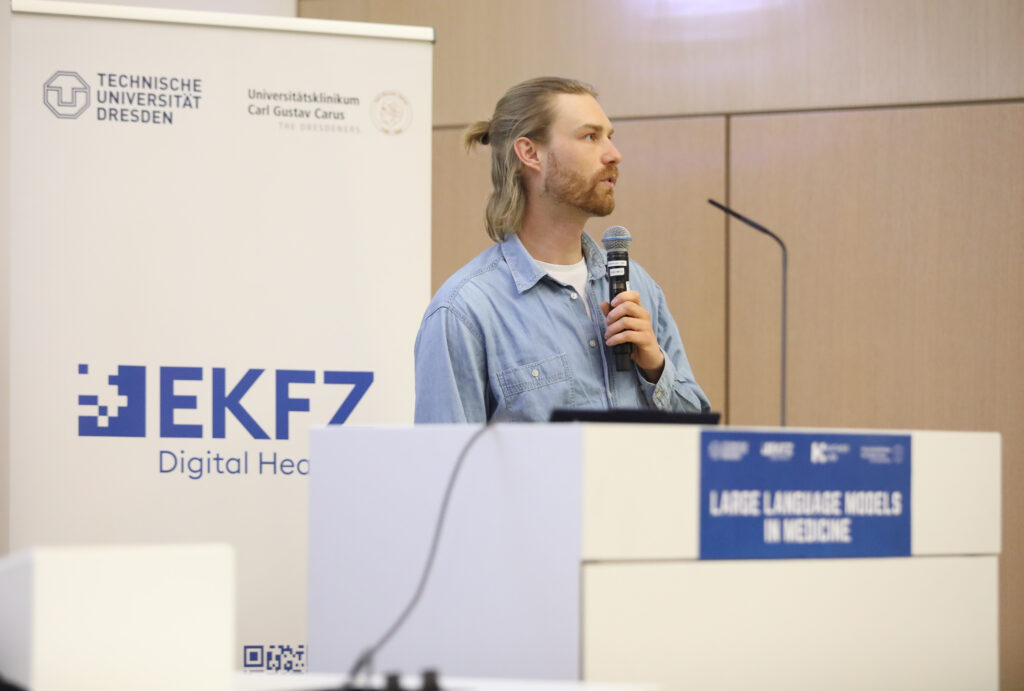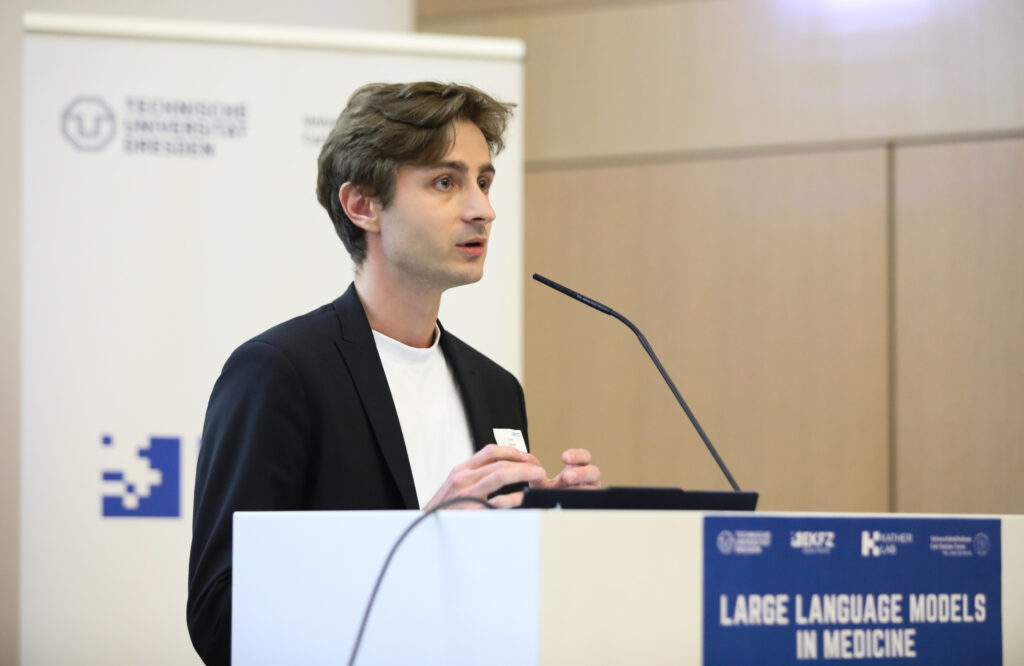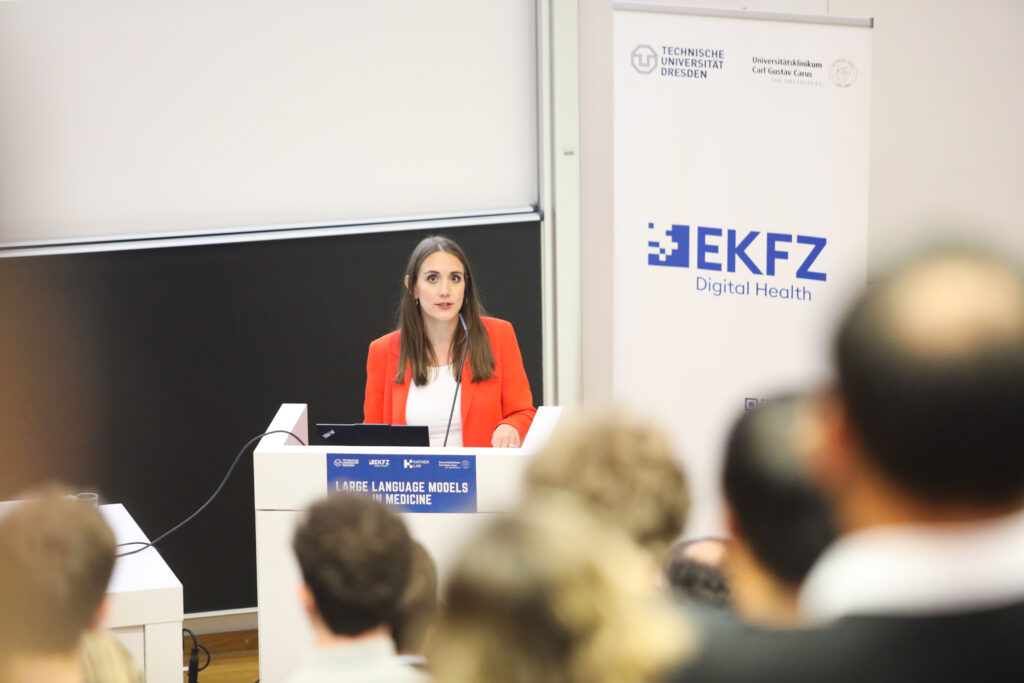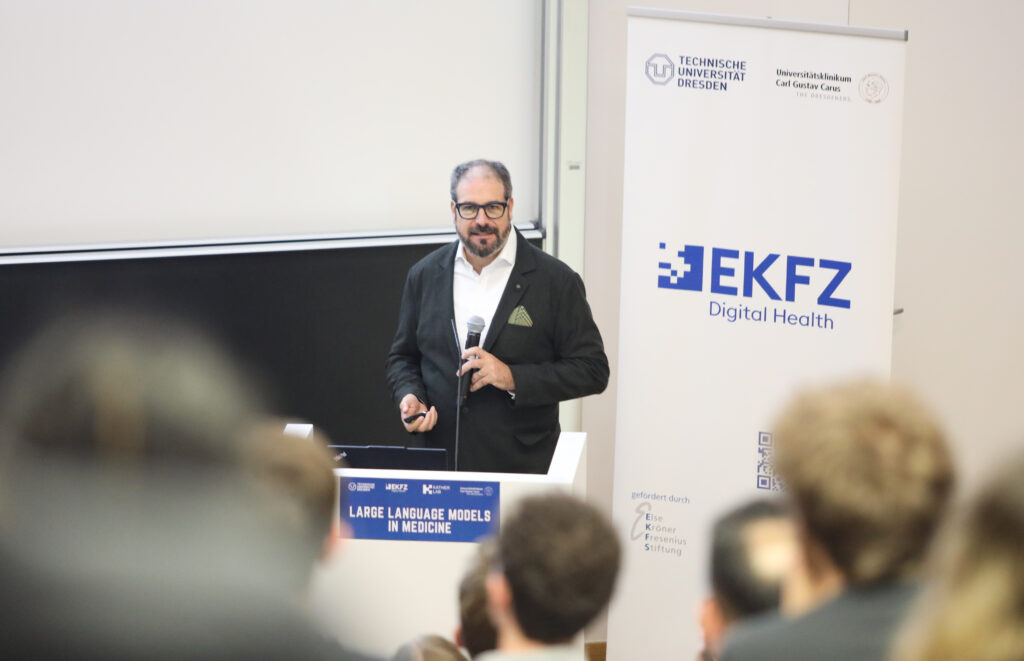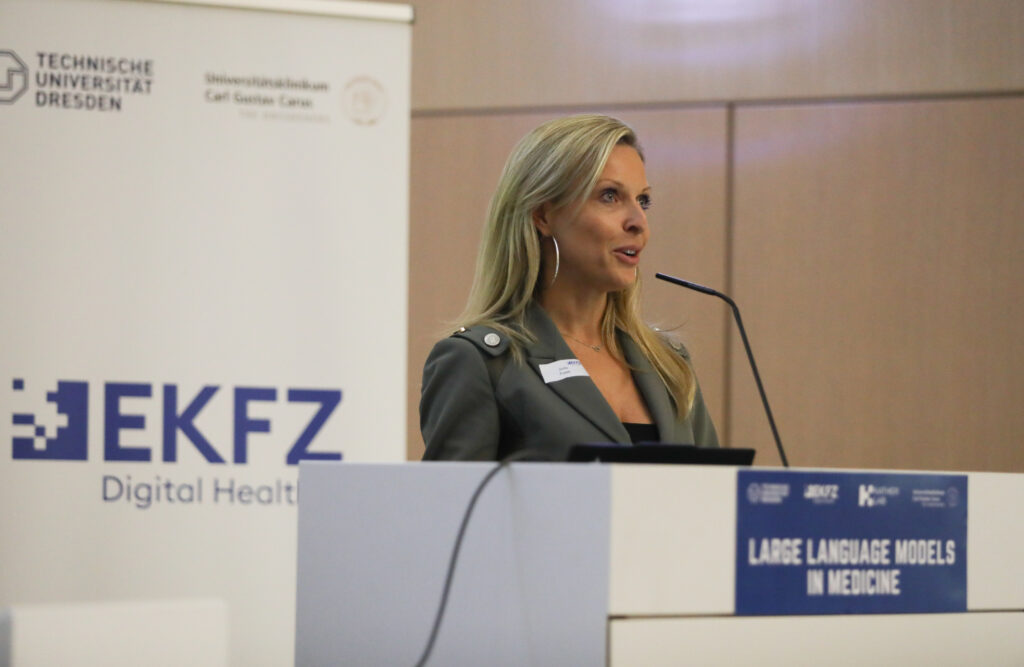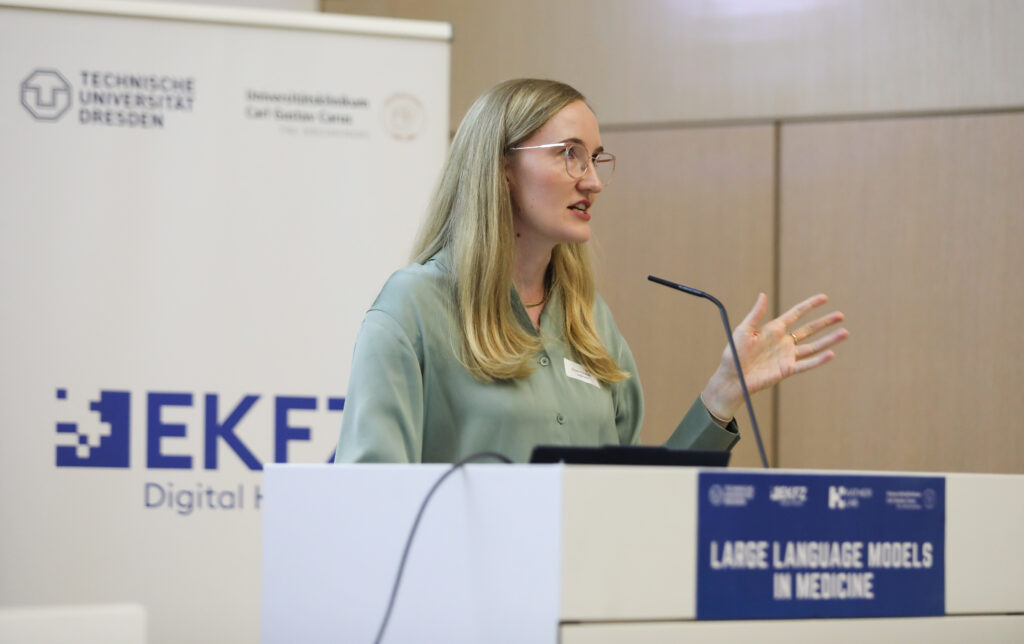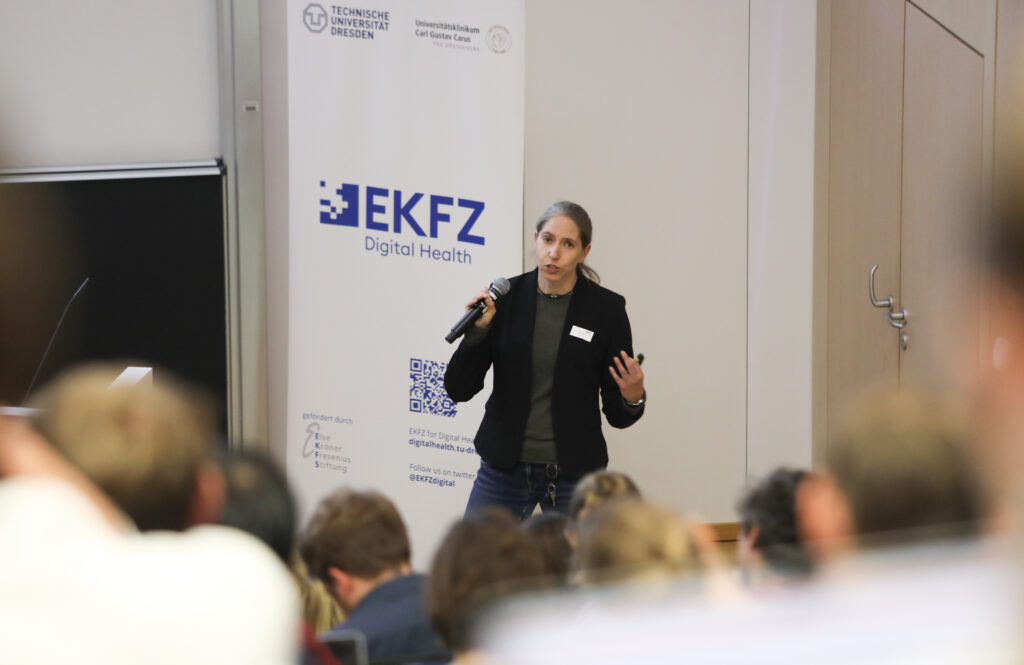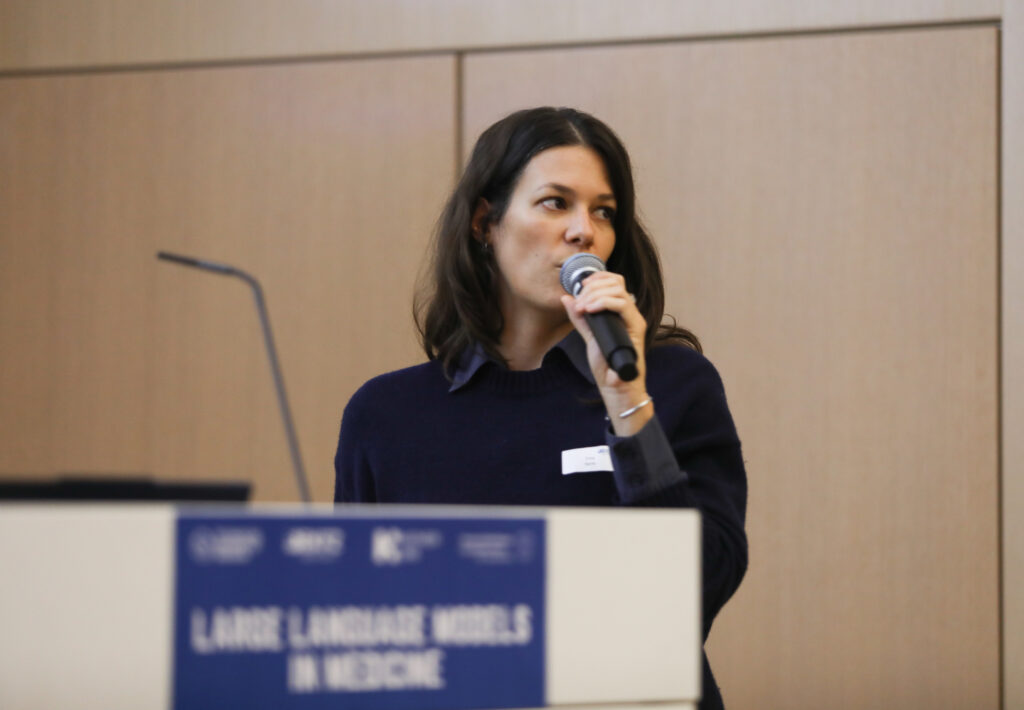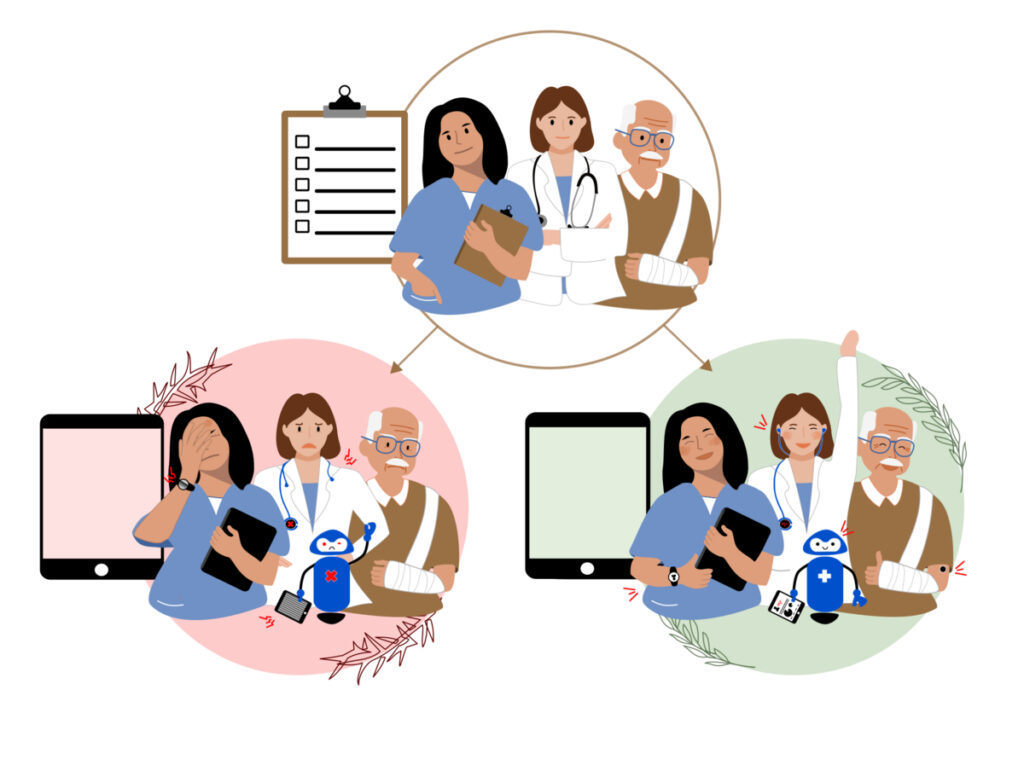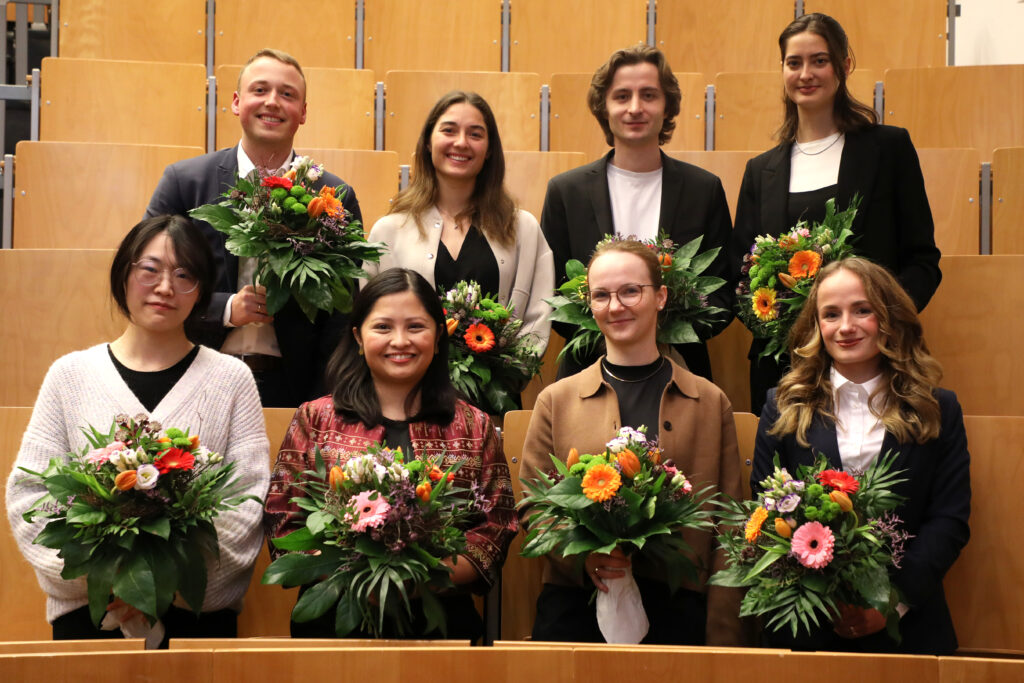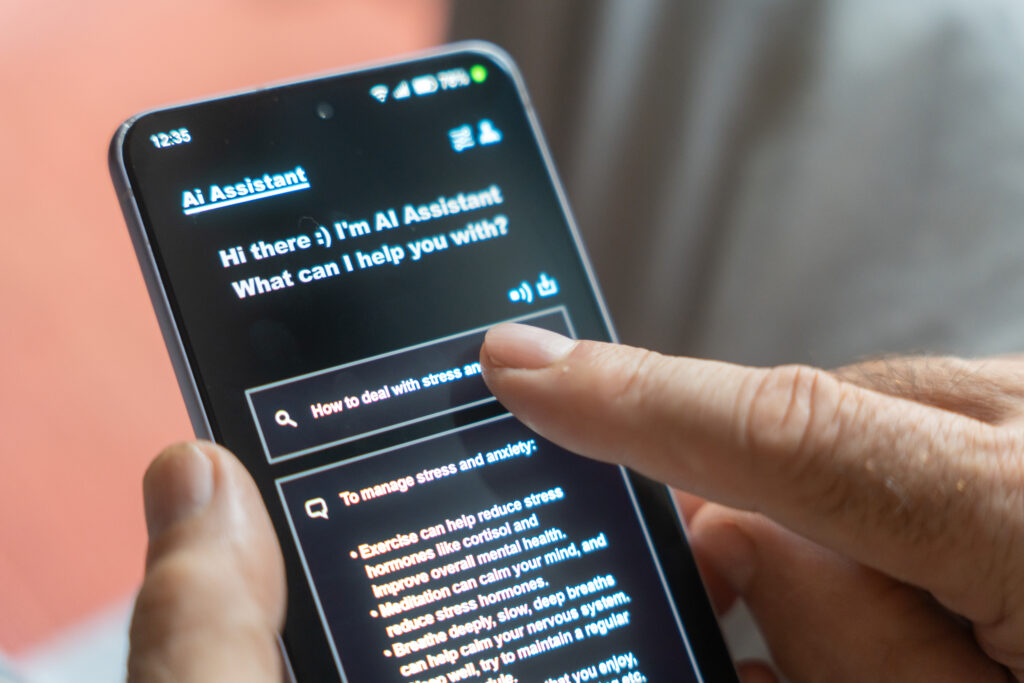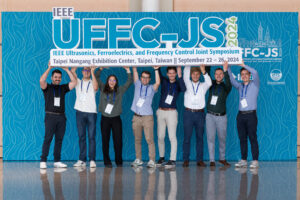On October 10, 2024, over 100 participants attended the Symposium on Large Language Models (LLMs) in Medicine at the Center for Regenerative Therapies of TU Dresden to explore how LLMs are transforming healthcare and to discuss current challenges. The event focused primarily on their application in oncology care.
Marco Gustav, a PhD student in Prof. Jakob N. Kather’s “Clinical AI” research group, introduced the audience to LLMs with an engaging Science Slam. He explained fundamental concepts in an accessible and entertaining way. Following this, Dr. Isabella Wiest presented the evolution of LLM technologies, and Dr. Dyke Ferber provided insights into their use in clinical decision support systems.
Nick Schneider from the German Federal Ministry of Health (BMG) gave an overview of the legal requirements and regulatory framework for the use of real-world data. He discussed the ministry’s ongoing efforts to promote the use of AI in healthcare and highlighted both national and EU-level regulations, including the European Health Data Space (EHDS) and the German Health Data Use Act (GDNG).
After a coffee break that allowed for networking and exchange of ideas, the talks focused on several implementation projects showing practical applications of LLMs from research and industry perspectives. Dr. Daniela Richter and Dr. Irina Kerle from the National Center for Tumor Diseases (NCT) Dresden presented the “MASTER” program and discussed the challenges of real-world data mining. Dr. Marie Leßmann followed with a presentation on how LLMs can help organize oncological data, emphasizing the need for more efficient data structuring in the future.
The symposium concluded with an inspirational lecture by Dr. Anita Puppe, Senior Healthcare Consultant at IBM iX. She shared several case studies and application projects featuring LLMs in medicine, including examples from Tempus Labs, Google DeepMind, and Paige AI, which are contributing to more personalized therapies and improved diagnostics. Dr. Puppe also shared her vision of the future of healthcare powered by AI, robotics, and quantum technologies.
In addition to the in-person attendees, about 30 participants joined the event via livestream and actively participated in the concluding discussion. The symposium offered fascinating insights into AI research and highlighted the immense potential of LLMs to enhance patient care and medical research.


